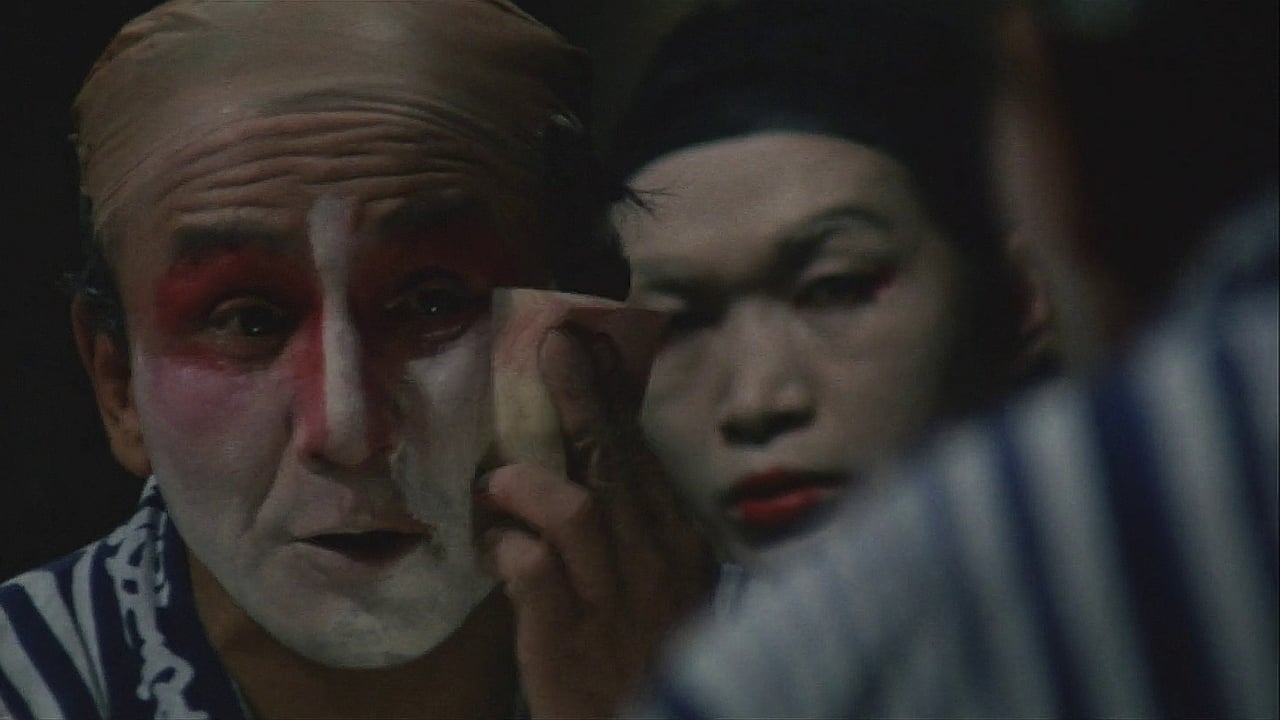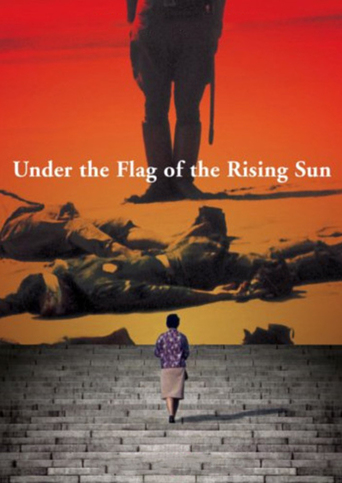

This Movie Can Only Be Described With One Word.
... View MoreSERIOUSLY. This is what the crap Hollywood still puts out?
... View MoreI gave it a 7.5 out of 10
... View MoreStrong acting helps the film overcome an uncertain premise and create characters that hold our attention absolutely.
... View MoreDirector Fukasaku is best known for his cult classic Battle Royale, as well as numerous yakuza flicks from the '70s. Under the Flag of the Rising Sun is really the film he should best be known for. He produced it independently, and it's easily his most prestigious and all-around exceptional film. It's a WWII movie, made from the perspective of a quarter century later. Sachiko Hidari stars as a war widow in 1971 who is still trying to get benefits from the government, as well as restore her husband's honor. He was supposedly executed in the waning days of the war, but any further information has disappeared. To find the truth, she begins searching for veterans who may have known her husband. She interviews several witnesses who give her a conflicting story of her husband, but a pretty vivid picture of what it might have been like to be a soldier fighting in the New Guinea front. The film isn't exploitative, but it can be explicitly violent (most of the flashbacks are in black and white up until the violence starts - Fukasaku does not want the audience to be separate from that). Under the Flag of the Rising Sun is one of the most unflinching of all the great Japanese WWII films. You really feel the pain that still exists in the early '70s. The sequences with the war veteran teacher, watching over his students who have grown up after the war and are completely innocent of it, are especially gut-wrenching. I also loved the performance of Noboru Mitani, best known for playing the irresponsible homeless father in Kurosawa's Dodeskaden, who plays a veteran with a dark secret.
... View MoreThere are three great war movies. This film is at the top of the list. You will not be able to get these images out of your thoughts. I would not categorize this film as anti-war; rather, I'd say it takes a realistic look at the battle/conflict it portrays and does not flinch at failing to romanticize any part of the story. You might see the narrator's story somewhat romantic, but the loss suffered here justifies the actions of the character. All in all a brilliant story of war like you have never seen it before. The story also examines bureaucratic Japan after the war that's where the story really packs a punch.There is beautiful scene involving a last meal that puts this writer/screen writer and this director at the top of my list. Great movie.By the way, the other two great war movies are, "Battle of Algiers" and "Queimada."
... View MoreIf you are thinking of watching this, you need to know what your are getting into first. This is a violent movie, in the extreme.I do not ordinarily watch violent movies. But I am glad I watched this one, even though I had to turn away a few times. The subject matter is about violence, and the director pulls no punches.It is so easy to romanticize war, either in victory or defeat. This movie clearly has a message for the Japanese people about WWII that the director intends them never to forget. That it was received so well, speaks well of the Japanese people's honesty. And it has a message for her Asian neighbors who suffered at the hands of Japanese soldiers, that perhaps hate is no longer appropriate.Viewing it as an American, I was struck by how different the image is from that of the well-disciplined soldier presented almost as a polite stereotype in Hollywood movies. An American director could not have gotten away with such a movie. However, I can't help wondering if this is perhaps not exactly a representative view of what Japanese soldiers went through.The movie is told very effectively through its plot, following the inquiries of the war widow into the death of her husband. As the truth comes out, it hits you in the gut much as it would have hit this widow.At the same time, the director apparently did not intend for this film to be viewed too narrowly as an antiwar movie. It is not just about war, and it is not just about Japanese soldiers, it is about human beings, and what any of us might do in similar circumstances.
... View MoreSearing indictment of war and the individuals discredited in its aftermath. Directed by the masterful Kinji Fukasaku, it is a harsh, bleak work that uses monochrome flashbacks with occasional explosions of color, war photographs, and grim narration to tell a terrible tale.Sachiko Hidari, a war widow, has spent twenty-six years searching for the truth about her husband's death. Was he executed? Was he a deserter? Was he a hero? As the government adheres to an official, flawed version of events, the stubborn woman seeks her own answers by speaking to the men who served with her husband. The stories told by these damaged soldiers comprise the bulk of the movie and accounts are complicated by each man's "truth".Exceptionally well acted and directed with a savage determination to depict the insanity of war in its rawest state, this is surely one of Fukasaku's greatest achievements and certainly one of the most honest portraits of homosapien behavior ever branded to celluloid.
... View More